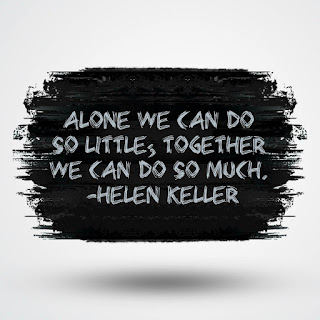What I Wish All Teachers Were Doing Right Now
 |
| Drawing credit: Jett Sánchez |
What I want to see as a parent, a teacher, and a student, is releasing ourselves from unrealistic expectations. I want us continue to survive without compromising our mental health. We should be able to focus on ourselves, and our families, without feeling we need to apologize. Here are ten ways to encourage this.
1. Stop grading. What does it mean to be learning right now? Most teachers are not introducing new curriculum at this point, deciding instead, to focus on material students are already familiar with. Meaning, teachers have probably already assessed students for these skills. Continuing to grade assignments at this point is not incentivizing students to improve, but introducing more pressure to perform under extenuating circumstances. This also translates to teachers, who may believe student's grades are a product of their teaching.
2. Provide resources. Not necessarily learning links but links to remote therapy, silly videos of animals, resources for testing, food, shelter, tech assistance or this great article.
3. Listen. Not only to your students but to yourselves. If you are overwhelmed or exhausted that is valid. Just because you're at home, doesn't mean you are on vacation. You are working in extreme circumstances, so please give yourselves the same grace you are extending to your students.
4. Limit your emails. Please try not to overwhelm your families with emails. But also set working hours for yourself so that you aren't working twenty-four hours a day. At this time yo are creating individual lesson plans for students. Students with disabilities are at a disservice, many of the
5. Connection is nice but it is also exclusive. All students want to be able to see their teachers and friends but not all students feel comfortable being seen. It can be embarrassing and rather odd to have a camera in your face and our voices always sound weird through a mic. Give students time to adjust to not only distance learning but being in a video conference. Be aware that there are class barriers to being able to log in that can't be only be resolved with a lending laptop. It takes time to learn how to use it, and how to then teach your child, so be patient. Prerecord your lectures so families can log in when they can. Consider students living with disabilities who had a scribe at school and now will need to adjust to voice-to-text software or other substitutes for their assistive technology. Let families know that it is not a requirement. Teachers need to be allowed to make accommodations.
6. Focus on emotional literacy. Now is a perfect time to show students Brené Brown or Daniel Tiger, Steven Universe or introduce things like the "Feelings Wheel" to show students what anxiety looks and feels like so they can talk about it. What does sadness look like? Not always tears but maybe we feel it in our stomachs. This is a skill that all people need in life and too often it is ignored in education but now we have an opportunity to go there. Our students will be better communicators for it.
7. Talk to students directly. Teachers are operating in student's homes. At this point you should acknowledge the crisis and then shift expectations for yourselves and for students. You can't expect to be able to manage your students like you do in your classroom. Pets, siblings other family members may interrupt your class. This is not the time to be mad or feel disrespected, instead feel happy that students have others to social distance with right now.
8. Be reassuring but honest. Now is the time for transparency. Students are online receiving misinformation they don't need their teachers or mentors sugar-coating. Students need honesty, even when it's scary. As a teacher you can speak honestly about your fears but remind students of what we know. We know things are changing. We know that teachers will be there to support students.
9. Leniency during a crisis demonstrates compassion not laziness. You aren't a bad teacher for foregoing grades or not expecting your students to be rigorous or challenged by schoolwork. Shift gears and think about how you can be a positive addition to students lives, not another source of stress.
10. Remember that a lot of students are dealing with not having a enough. Not having fast enough internet connection, or enough devices, or perhaps a safe place to stay. Students who identify with the LGBTQ community may be feeling like they need to police their behavior in front of family. All students are dealing with the stress of their world being turned upside and with the accompanying unnerving uncertainty.


Comments
Post a Comment